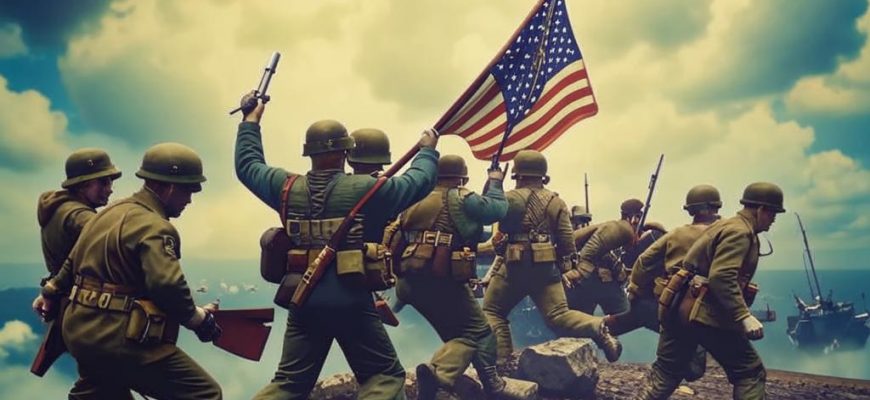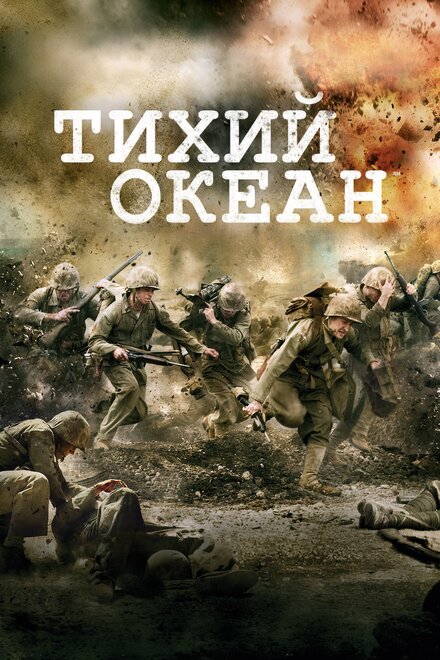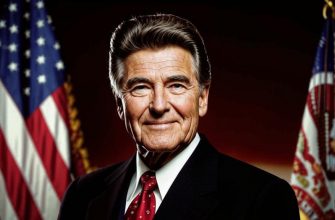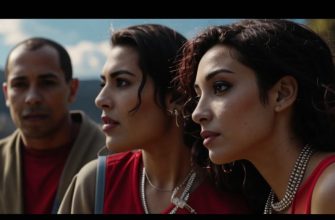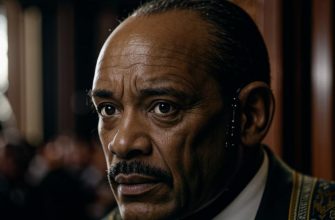“Flags of Our Fathers”, 2006
Director: Clint Eastwood

Directed by Clint Eastwood, this film chronicles the Battle of Iwo Jima from the perspective of the American soldiers. It focuses particularly on the men in the famous photograph of the flag raising on Mount Suribachi and examines the effects of the war and the photograph on their lives. The narrative also delves into themes of heroism, memory, and the construction of war propaganda.
Starring: Ryan Phillippe, Jesse Bradford, Adam Beach, John Benjamin Hickey, John Slattery, Barry Pepper, Jamie Bell, Paul Walker, Robert Patrick, Neal McDonough;
Production year: 2006;
Genre: war, drama, action, history;
MPAA rating: r;
Duration: 135 min.;
Rating: IMDB: 7,1;
More information about the film “Flags of Our Fathers” on the website imdb.com
“Letters from Iwo Jima”, 2006
Director: Clint Eastwood

A companion piece to “Flags of Our Fathers,” also directed by Clint Eastwood, “Letters from Iwo Jima” presents the battle from the Japanese perspective. It tells the story through the eyes of General Tadamichi Kuribayashi and his letters, offering a poignant look at the Japanese defense, the strategy behind it, and the personal experiences of the soldiers. The film is notable for its empathetic portrayal of the Japanese forces, presenting a more nuanced view of the enemy.
Starring: Ken Watanabe, Kazunari Ninomiya, Tsuyoshi Ihara, Ryo Kase, Shido Nakamura, Hiroshi Watanabe, Takumi Bando, Yuki Matsuzaki, Takashi Yamaguchi, Eijiro Ozaki;
Production year: 2006;
Genre: drama, action, war, history;
MPAA rating: r;
Duration: 141 min.;
Rating: IMDB: 7,8;
More information about the film “Letters from Iwo Jima” on the website imdb.com
“Sands of Iwo Jima”, 1949
Director: Allan Dwan

This classic war film stars John Wayne as a tough Marine sergeant preparing his men for combat in the Pacific theater. The movie culminates in a dramatic recreation of the Battle of Iwo Jima, emphasizing heroism and the gritty realities of war. Though dramatized, “Sands of Iwo Jima” is an early cinematic representation of the battle and contributed to the war film genre in the 20th century.
Starring: John Wayne, John Agar, Adele Mara, Forrest Tucker, Wally Cassell, James Brown, Richard Webb, Arthur Franz, Julie Bishop, James Holden;
Production year: 1949;
Genre: action, drama, melodrama, war;
Age: 16+;
Duration: 100 min.;
Rating: IMDB: 7;
More information about the film “Sands of Iwo Jima” on the website imdb.com
“The Pacific”, 2010
Director: Jeremy Podeswa, Timothy Van Patten, David Nutter, Carl Franklin
While not a film, this ten-part HBO miniseries deserves mention for its comprehensive depiction of the Pacific Theater of World War II, including the Battle of Iwo Jima. It follows the intertwining journeys of several Marines through different battles across the Pacific, providing a grim and gripping portrayal of their experiences, with particular episodes dedicated to the events on Iwo Jima.
Starring: James Badge Dale, Joseph Mazzello, Jon Seda, Ashton Holmes, Josh Helman, Rami Malek, Martin McCann, Keith Nobbs, Toby Leonard Moore, Tom Hanks;
Production year: 2010;
Genre: war, action, drama, history;
Age: 18+;
Rating: IMDB: 8,3;
These films and series offer a range of perspectives on the Battle of Iwo Jima, each exploring different facets of the conflict and its impact on those who participated in it. Whether focusing on strategy, personal stories, or the broader implications of the battle, they contribute to our understanding of one of World War II's defining moments.
Conclusively, films about Iwo Jima serve not only as cinematic retellings of one of World War II's most fiercely contested battles but also as poignant explorations of human courage, sacrifice, and the complexities of war. By blending stark realism with deep emotional resonances, these films transcend mere historical recounting to engage audiences in a reflection on the broader implications of war for individuals and nations alike. Whether through the gritty, visceral portrayal of combat or the intimate examination of soldiers' experiences, these narratives honor the memory of those who fought on the sands of Iwo Jima, while prompting viewers to consider the enduring costs of conflict. As artistic endeavors, they remind us that the echoes of history are not confined to the pages of textbooks but continue to reverberate through the powerful medium of film, bridging the past and present with enduring stories of resilience, humanity, and the quest for peace.

